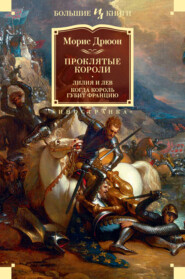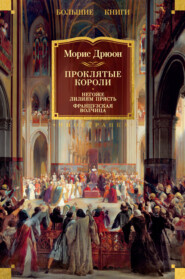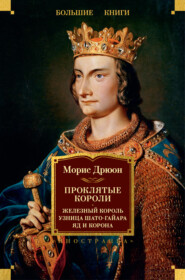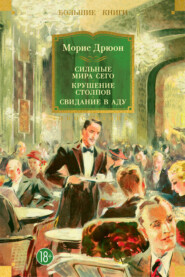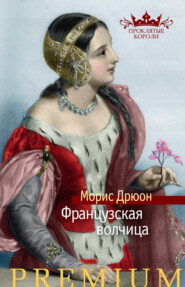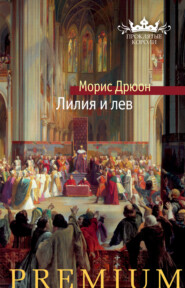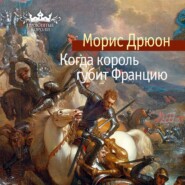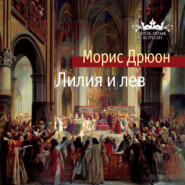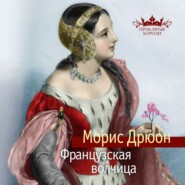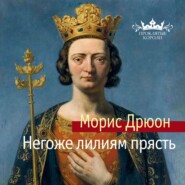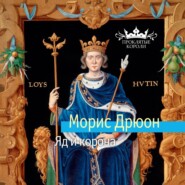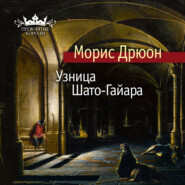По всем вопросам обращайтесь на: info@litportal.ru
(©) 2003-2025.
✖
The King Without a Kingdom
Автор
Год написания книги
2019
Настройки чтения
Размер шрифта
Высота строк
Поля
Clement VI stayed in town along with several cardinals including myself. ‘If God wants us, He will take us.’ And although he compelled most of the four hundred officers of the papal household to stay on, they were scarcely enough to organize relief operations. The pope handed out wages to all the doctors and physicians; he hired carters and gravediggers, had supplies distributed and prescribed sound enforcement measures to limit contagion. Nobody at that time accused him of recklessly squandering resources. He reprimanded monks and nuns alike who shirked their charitable duties towards the sick and the dying. Ah! I heard a few things during confession: the repentance of the high and mighty, even those of the Church, who came to cleanse their souls of all their sins and seek absolution! Even the big Florentine and Lombard bankers, who confessed through chattering teeth and suddenly discovered their generous selves. And the cardinals’ mistresses … oh yes, oh yes, my nephew, not all, but a fair few cardinals … these beautiful ladies came to hang their jewels on the Holy Virgin’s statue! They held handkerchiefs under their noses, impregnated with aromatic essences, and threw away their shoes before entering their homes once more. Those who accused Avignon of impiety, of being the new Babylon, didn’t see it during the Great Plague. We were pious all right, I assure you!
What a strange creature is man! When everything goes his way, when he is blooming with health, when his business is flourishing, his wife fertile and his province in peace, isn’t it precisely then that he should constantly lift up his soul unto the Lord and give thanks for such blessings? Not at all; he is quick to forget his creator, proudly flying in the face of all the commandments. However, as soon as misfortune and disaster strike, then he rushes to God. And he prays, and admits his guilt, and he promises to mend his ways. God must be right to burden him, since it is the only way, or so it seems, to bring man back to Him.
I didn’t choose my condition. It was my mother, perhaps you know, who designated me when I was a child. If I accepted this fate, it was, I believe, because I have always been grateful to God for all He has given me, especially, the gift of life. I remember, when I was very young, in our ancient castle in Rolphie, Périgueux, where you yourself were born, Archambaud, but which is no longer home to you since your father chose to take up residence in Montignac fifteen years back … well there in that huge castle, set amongst the ancient stones of a Roman arena, I remember the wonder that filled me suddenly, the wonder of being alive at the centre of the big, wide world, to breathe, to see the sky; I remember this feeling came to me on summer evenings, when the light is long and I was put to bed well before nightfall. The bees buzzed in a vine that climbed the wall beneath my room, the shadow slowly filled the oval courtyard with its enormous stones; birds flew across the still-light sky and the first star appeared amidst the rose-tinged clouds. I had a great childish need to say thank you, and my mother made it clear to me that it was to God I should give thanks, the Organizer of all this beauty. And that thought has never left me.
On this very day, all along our route, often I feel a thank you in my heart for this warm weather, for these russet-coloured forests we ride through, for these still-green pastures, for these loyal servants who escort me, for these fine, fattened horses that I see trotting alongside my palanquin. I enjoy watching the faces of men, the movements of the beasts, the shapes of the trees, all this infinite variety that is the infinitely wonderful work of God.
All our doctors who fight over theology in closed classrooms, and cram themselves full of empty words, and shout bitter abuse at each other, and who bore everyone to death inventing words to name otherwise what we already knew before them, all of these people would be better off contemplating nature, thereby healing their minds. I have the theology that I was taught, handed down from the fathers of the Church; and I have no desire to change it …
Did you know that I could have been pope? Yes, my nephew. Many tell me so, as they tell me that I could yet be pope if I outlast Innocent. It will be God’s will. I do not complain about what he has made me. I thank him that he put me where he has put me, and that he has kept me on to be the age I am, an age that few attain: fifty-five years, my dear nephew, that is my age, and in as fine form as you see me. That is also the Lord’s blessing. Those whom I haven’t met for ten years cannot believe their eyes: that I have changed so little in appearance, my cheeks still as rosy, and my beard scarcely whitened.
The idea of being made or not being made pope only bothers me, in truth – I confide this to you as a relative – when it occurs to me that I could act more wisely than the one who wears the papal tiara. And yet I never had that feeling with Clement VI. He fully understood that the pope should be a monarch above all monarchs, God’s right-hand man. On a day when Jean Birel or some other preacher of asceticism accused him of being too extravagant, and too generous to the supplicants, he responded: ‘Nobody should leave the prince’s company dissatisfied.’ And, turning to me, he added between his teeth: ‘My predecessors didn’t know how to be pope.’ And during the Great Plague, as I was saying, he really proved he was the best. I don’t believe, in all honesty, that I could have done as much as he, and I thanked God, once again, that He hadn’t designated me to lead an ailing Christendom through this ordeal.
Not once did Clement abandon his majesty; and indeed he demonstrated that he was the Holy Father, the father of all Christians, and even father to all others, as when peoples almost everywhere, but especially in the Rhineland provinces of Mainz and Worms, turned against the Jews, accusing them of causing the scourge, he condemned such persecutions. He went further and took the Jews into his own protection; he excommunicated their tormentors; he offered asylum to the hounded Jews and relocated them within his states, where it must be said they re-established prosperity in just a few years.
But why was I going on so long about the plague? Ah, yes! Because of the dire consequences it had for the French crown, and for King John himself. Indeed, towards the end of the epidemic, during the autumn of 1349, one after the other, three queens, or rather two queens and one destined to be …
What are you saying, Brunet? Speak louder. Bourdeilles is in sight? Ah, yes, I want to see that. It is a stronghold indeed, and the castle well placed to monitor those approaching from afar.
There it is, Archambaud, the castle my younger brother, your father, gave up to me to thank me for liberating Périgueux. While I haven’t succeeded in freeing King John from the hands of the English, at least I saved our county town from their clutches and re-established our authority here.
The English garrison, you remember, didn’t want to leave. But the lances that accompany me, and which certain people make mockery of, proved themselves once again most useful. It was enough for me to appear with them, coming from Bordeaux, for the English to pack up and leave without further ado. Two hundred lances and a cardinal, it is quite something to see … Yes, most of my servants have been trained for combat, as well as the secretaries and the doctors of law that travel with me. And my faithful Brunet is a knight; I obtained his ennoblement not long ago.
In the end, by giving me Bourdeilles, my brother is strengthening his position. Because with the castellany of Auberoche, near Savignac, and the walled town of Bonneval, near Thenon, that I bought for twenty thousand florins from King Philip VI ten years ago … well I say bought, but in reality it offset in part the sums that I had loaned him … and with the fortified Abbey of Saint-Astier, of which I am the abbot, and my priories of Fleix and Saint Martin of Bergerac, that now makes six fortresses at a good distance all around Périgueux which belong to a high representative of the Church, almost as if they belonged to the pope himself. And one would be reluctant to cross swords with him. That is how I keep the peace in our county.
You know Bourdeilles, of course; you have come here often. I haven’t been here for a long time. Fancy that, I don’t remember that great octagonal keep. It cuts a fine figure indeed. Here we are at last, this is mine, but only to spend one night and one morning, the time it takes to install the governor I have chosen, without knowing when or whether I would return. It is too short a break to enjoy. Well let us thank God for this time that he has given me here. I hope they have prepared us a good supper, travelling gives you quite an appetite, even in a palanquin.
3 (#ulink_af55a17c-bdd3-5b3b-af53-dff55bb87056)
Death knocks on every door (#ulink_af55a17c-bdd3-5b3b-af53-dff55bb87056)
I KNEW IT, MY NEPHEW, I told you so, today we shouldn’t count on going further than Nontron. And even so we will only arrive there long after evensong, in the black of night. La Rue kept on at me: ‘Monseigneur is losing ground, monseigneur will not be satisfied with a stage of just eight leagues …’ Oh yes! La Rue always goes like the clappers. Which is no bad thing at all, as at least with him my escort never dozes off. But I knew that we wouldn’t be able to leave Bourdeilles before midday. I had too much to do, too much to decide upon, too many signatures to dispense.
Because I love Bourdeilles, you see; I know that I could be happy there if God had assigned me not only to possess it but also to reside there. He who has just one single, unique and modest possession may enjoy it to the full. He who has vast and multifarious possessions enjoys only the idea of them. Heaven always evens out what we are honoured with.
When you return to Périgord, would you grant me the favour of revisiting Bourdeilles, Archambaud, to see if the roofing has been repaired as I requested earlier. And the fireplace in my room was smoking … It is lucky indeed that the English spared it. You saw Brantôme, we just passed through: you saw the devastation they caused, a town that used to be so lovely and so beautifully set on the banks of its river, razed! The Prince of Wales stopped over for the night of the ninth of August, according to what I have been told. And in the morning, before leaving, his coutiliers and valets3 (#litres_trial_promo) set the place ablaze.
I strongly condemn the way they destroy everything, burning, exiling, ruining, as they seem to be doing more and more often. I can understand men-at-arms will slit each other’s throats in wartime; if God hadn’t designated me for the Church, I should have had to take arms and fight, and I would have shown no mercy. Pillaging is acceptable: one must give some of life’s pleasures to those men of whom we require the shedding of blood, including their own. But raiding for the sole purpose of leaving behind a destitute people, burning thatch and crops to expose them to famine and chill, consumes me with rage. I am aware of the intention; the king can no longer draw taxes from a ruined province, and by destroying his subjects’ goods and belongings a monarch can be weakened. However, this doesn’t hold true. If the Englishman purports to have a claim to France, why would he lay the country to waste? And does he imagine that he will ever be accepted, acting this way? Even if he prevails in the signing of treaties after prevailing in the winning of battles, does he really think that? He sows seeds of hatred. He most probably deprives the King of France of money, but at the same time he supplies this monarch with many souls spurred on by anger and a desire for vengeance. King Edward will inevitably manage to find a few overlords here and there willing to swear allegiance to him in pure self-interest, but the people will be set against him for ever from the time he committed these inexpiable acts of destruction. Take a look at what is happening already; good people don’t resent King John for having lost in battle; they take pity on him, calling him John the Brave, or John the Good, when they should be calling him John the Fool, John the Obstinate, John the Incapable. And you will see that they will willingly bleed to pay his ransom.
You ask me why I told you yesterday that the plague had had such a disastrous effect on John and on the kingdom’s fate? Ah! My nephew, for its own reasons, death, a handful of deaths in the wrong order, the deaths of women, first of all his own wife, Madame Bonne of Luxembourg, before he became king.
Madame of Luxembourg was taken by the plague in September of the year 1349. She was to have been queen, and would have been a good queen. She was, as you know, the daughter of the King of Bohemia, John the Blind, who so loved France he maintained that Paris was the only court in which one could live nobly; he was a model of chivalry, albeit not entirely of sound mind. Although he could not see a thing, he insisted stubbornly on fighting at Crécy, and in order to do so, had his horse attached to the mounts of the two knights who rode on either side of him. And that was how they flung themselves into the fray. All three of them were found dead, still tied together. Now the King of Bohemia wore three white ostrich feathers on the crest of his helmet. The young Prince of Wales was struck by his noble demise – the prince was then nearly sixteen; it was his first battle – and he did well, notwithstanding King Edward considered it politic to exaggerate the deeds of his son and heir in the matter. The Prince of Wales was thus so hard hit he begged his father to allow him to adopt the same emblem as the late, blind king from that day on. And that is why three white feathers can now be seen on the prince’s helmet.
However, the most important thing about Madame Bonne was her brother, Charles of Luxembourg, whose election to the crown of the Holy Roman Empire we, Pope Clement VI and I, actively encouraged. Not that we were unaware that we would have a good deal of trouble with as sly an old fox of a yokel as he … Oh! You will soon see for yourself he is nothing like his father; but as we had justifiable fears that France would fall on wretched times, it could only strengthen the country to make its future king the Emperor’s brother-in-law. But with the sister dead, the alliance was no more. And though troubles indeed we have had with his Bulla Aurea,4 (#litres_trial_promo) he has never given support to France, and that is why I am leaving for Metz.
King John, who was then still Duke of Normandy, showed little despair upon the death of Madame Bonne. They hadn’t got along well, with more stormy outbursts between them than harmony and understanding. Although she possessed grace, and he had made her round with child every year, eleven in all, since he had been given to understand that it was time for him to draw closer to his wife in bed, Monseigneur John was more inclined to shower his affections upon his very own cousin, eight years his junior and of rather fine bearing. Charles de La Cerda, who was also known as Monsieur of Spain,5 (#litres_trial_promo) as he belonged to a supplanted branch of the throne of Castile.
No sooner was Madame Bonne buried than Duke John withdrew to Fontainebleau in the company of the handsome Charles of Spain, in flight from the epidemic. Oh! This vice is by no means rare, my nephew. I can’t understand it and it annoys me no end; it is one of the vices for which I have the least indulgence. We must admit however that it is widespread, even amongst kings, to whom it does a great deal of damage. Look no further than to the case of King Edward II of England, father of the current king. It was sodomy that cost him both his throne and his life. Our King John doesn’t flaunt his depravity quite so openly; but he does have many of the characteristics of a sodomite, and he revealed these traits particularly in his consuming passion for this Spanish cousin with the too-pretty face.
Whatever is the matter, Brunet? Why are we stopping? Where are we exactly? In Quinsac. This was not planned. What do these yokels want? Ah! A blessing! We shall not stop my retinue for such a thing; you know perfectly well that I only bless on foot. In nomine patris … lii … sancti. Go, good people, may you be blessed, go in peace. If we had to stop every time I am asked for a benediction, we would be six months in reaching Metz.
So, as I was saying, in September of the year 1349, Madame Bonne died, leaving the heir to the throne a widower. In October came the turn of the Queen of Navarre, Madame Jeanne, whom they used to call Little Joan, the daughter of Marguerite of Burgundy and perhaps, or perhaps not, Louis Hutin,6 (#litres_trial_promo) the one who was kept from succession to the French throne under suspicions of illegitimacy – yes, the child of the Tower of Nesle affair – she too was taken by the plague. Neither was her demise met with many tears. She had been widowed for six years by her cousin Monseigneur Philip III of Évreux, killed fighting against the Moors somewhere in Castile. The crown of Navarre had been ceded by Philip VI upon his accession to remove any claims they could have made to the French throne. That was just part of the bargaining that ensured the throne to the Valois.
I have never approved of this Navarrese arrangement, it was neither valid de jure nor de facto.7 (#litres_trial_promo) But I didn’t then have a say! I had just been appointed Bishop of Auxerre. And even if I had said something … It just didn’t make legal sense. Navarre was inherited from Louis Hutin’s mother. If little Joan wasn’t Louis’s daughter but that of any old equerry, she would have been no more entitled to Navarre than to France. Therefore, if one acknowledged her right to one of the crowns, then ipso facto one substantiated her claims, and her descendants’ claims, to the other. One admitted rather too easily that she had been kept from the throne, not for her alleged illegitimacy, but rather because she was a woman, and thanks to the artifice of a law invented by, and for, males.
As for the facts themselves, never would King Philip the Fair have agreed to the severing, for whatever reason, of a part of the kingdom’s territory, one that he himself had annexed! One doesn’t secure one’s throne by sawing off one of its legs. But it was a peaceful arrangement; Joan and Philip of Navarre remained most docile, Joan still under the cloud of her mother’s reputation, Philip by virtue of a dignified and thoughtful nature bequeathed him by his father, Louis of Évreux. They seemed to be happy with their rich Norman county and their small Pyrenean kingdom. Things would change when their son Charles, a boisterous young man of eighteen years, began to cast about vindictive looks, filled with condemnation for the failures evident in his family’s past, filled with ambition for his own future. ‘If my grandmother hadn’t been such a brazen whore, if my mother had been born a man, I would be King of France by now.’ I heard him say these things with my own ears. It was therefore considered advisable to show some interest in Navarre, the position of which, to the south of the kingdom, had secured the region even more importance since the English had conquered all of Aquitaine. So, as always in such circumstances, a marriage was to be arranged.
Duke John would have happily refrained from contracting a new marital union. But he was destined to be king, and the royal image required him to have a wife at his side, particularly in his case. A wife would prevent him appearing to walk too openly on the arm of Monsieur of Spain. Moreover, how could he better pander to the boisterous Charles of Évreux-Navarre, and how better tie his hands, than by choosing the future Queen of France from amongst his sisters? The eldest, Blanche, was sixteen years old. She was beautiful, and blessed with a sharp wit. Plans were coming along well, the pope’s permission had been secured and the wedding was practically announced, even though during the terrible period we were living through, we were all wondering who would still be alive the next week.
Because death continued to knock on every door. At the beginning of December the plague took the Queen of France herself, Madame Joan of Burgundy, the lame one, the bad queen. For her, decorum was scarcely enough to contain the cries of joy, and the people set to dancing in the streets. She was despised; your father must have told you so. She would steal her husband’s seal to have people thrown into prison; she would prepare poisoned baths for those guests she took a dislike to. She very nearly killed a bishop that way … The king occasionally beat her black and blue with torches; but he failed to mend her behaviour. I was most wary of the bad queen. Her suspicious nature filled the court with imaginary enemies. She was quick-tempered, a liar, a horrible person; she was a murderess. Her death seemed to be a delayed manifestation of heavenly justice. What’s more, immediately after her demise the scourge began to subside, as if this carnage, come from so far away, had had no other goal but to reach, at last, this harpy.
Of all the men in France, it was the king himself who was the most relieved by the news of her death. One month less one day later, in the cold of January, he remarried. Even as the widower of a universally hated woman, such haste was setting little store by social convention. But the worst was not in the timing. To whom was he wed? To his own son’s fiancée, Blanche of Navarre, the slip of a girl with whom he had fallen madly in love upon her first appearance at court. Although the French are happy to turn a blind eye to bawdiness, they hate to see their sovereign let himself be ruled by it in such fashion.
Philip VI was forty years older than the beauty he had snatched so brutally from the hand of his heir. And he couldn’t invoke a tradition of poorly matched princely couples, or the greater good of empires. He was setting a stone of scandal in his own crown, while inflicting upon his successor wounds of ridicule that would assuredly leave terrible scars. Philip and Blanche married in haste near Saint-Germain-en-Laye. John of Normandy of course did not attend. He had never been particularly fond of his father, and his father had offered him little affection in return. Now the son vowed the king nothing but hate.
And one month later, the heir also remarried. He was keen to put the insult he had suffered behind him. He made out to be delighted to settle for Madame of Boulogne, widow of the Duke of Burgundy. It was my venerable brother, the Cardinal Guy of Boulogne, who arranged the marriage in the interests of his family, while not forgetting to further his own interests as well. From a financial perspective, Madame of Boulogne was an excellent match. This should have cleared up the business affairs of the prince, who was a spendthrift second to none, but in fact he was only encouraged to squander yet more.
The new Duchess of Normandy was older than her mother-in-law; the two women produced a strange effect at court receptions, all the more so as any comparison between them – in terms of beauty and bearing – was hardly to the daughter-in-law’s advantage. Duke John was greatly vexed by this; he had let himself believe that he loved Madame Blanche of Navarre with all his heart, and he suffered torment seeing her, who had been so wickedly taken from him, next to his father, and being cosseted by him, in public, in the most idiotic fashion. This didn’t help nocturnal matters between Duke John and Madame of Boulogne; rather, the Duke was pushed further into the arms of Monsieur of Spain. Extravagance became his revenge. One would have thought that he was buying back his honour, not vaingloriously wasting money.
Besides, after the months of terror and grief we had endured, everybody was spending like mad. Especially in Paris. In and around the court was folly after the plague. They maintained that creating an abundance of luxury would provide work for the people. And yet we were hard put to see the effects in the hovels and the garrets. Between the princes with their rising debts and the poverty-stricken common people, there were the fixers and dealers who siphoned off the profit, big merchants like the Marcels, who deal in drapery, silks and other finery, and made themselves handsomely rich. Fashion became extravagant; Duke John, although he was already thirty-one years old, could be seen, together with Monsieur of Spain, wearing laced tunics so short his buttocks showed. People laughed at them no sooner had they passed by.
Madame Blanche of Navarre had been made queen sooner than originally planned; her reign was shorter than expected. Philip of Valois had come through both the war and the plague unscathed; he wasn’t to withstand love. All the years he was tied to a cantankerous, lame wife, he remained a handsome man, a little overweight but always robust, active, handling weaponry, riding fast, hunting long and hard. Six months of gallant prowess with his new, beautiful wife would undo him. It was obsession; it was frenzy. He would leave his bed with the thought uppermost in his mind of getting back in as soon as he could. He would ask his physicians for potions that would make him indefatigable in the act. What is it? Are you surprised? But of course, my nephew; despite being of the Church, or rather because we are of the Church, we need to be informed of such things, above all when they touch on the person of a king.
Madame Blanche was subjected to this obsession, the king’s passion was proved to her constantly; she was consenting, worried and flattered all at the same time. The king took to proclaiming publicly and with great pride that she wearied sooner than he. He lost weight. He lost interest in governing. Each week aged him a year. He died on the twenty-second of August 1350, at the age of fifty-seven, after a twenty-two-year reign.
Beneath his splendid exterior, this sovereign, to whom I was faithful … he was King of France, wasn’t he? And moreover I couldn’t forget that he was the one who had asked for the galero8 (#litres_trial_promo) on my behalf … this monarch had been a pitiful leader and a disastrous financier. He had lost Calais, he had lost Aquitaine; he left Brittany in a state of revolt and a good many of the kingdom’s strongholds in doubt or in ruin. Above all he had lost prestige. I’m afraid so! Although he had bought Dauphiny.9 (#litres_trial_promo) Nobody can be a perpetual catastrophe. It was I, it is good that you should know, who secured the deal, two years before Crécy. The Dauphin Humbert was so far in debt that he didn’t know whom to borrow from to pay back whomever. I will tell you the story in detail another day, if you are interested, how I went about getting the eldest son of France to wear the dauphin’s crown and bring Viennois back into the kingdom’s fold. In this way I can safely say, without wishing to boast, that I served France better than King Philip VI, as he only knew how to make it smaller, while I successfully expanded its borders.
Six years already! It has been six years since King Philip died and Monseigneur Duke John became King John II! Yet it still feels as if we are at the beginning of his reign, these six years have gone so quickly. Is it because our new king has achieved little one could deem noteworthy, or rather that the more one ages, the faster time seems to fly? At twenty, each month, each week, enriched with the new, seems to last for ever. You will see, Archambaud, when you get to be my age, if you do, that is, as I wish you may with all my heart, one turns around and one says to oneself: ‘How is it possible? Already another year gone by? How could it go so quickly!’ Perhaps it is because one takes up too many moments remembering, reliving times past.
And there it is; night has fallen. I knew we would be arriving at Nontron in the black of night.
Brunet! Brunet! Tomorrow we must leave before dawn, we have a long day’s travelling ahead of us, without the luxury of making any stops. So, everyone must be stocked up with provisions and we must be harnessed up in time. Who has gone ahead to Limoges to announce my arrival? Armand de Guillermis; that’s good. I send my knights on each one in turn to take care of my lodgings and the preparations for my welcome, one or two days in advance, no more. Just enough for the people to gather around eagerly, but not enough for the plaintiffs of the diocese to rush up and overwhelm me with their petitions for the king. The cardinal? Ah! We only found out the day before; alas, he is already gone. Otherwise, my nephew, I would be a veritable travelling tribunal.
4 (#ulink_6f7a1a22-7316-5b69-bcb2-b7ac62311ada)
The Cardinal and the Stars (#ulink_6f7a1a22-7316-5b69-bcb2-b7ac62311ada)
HEY! MY NEPHEW, I can see that you are taking to my palanquin and to the meals I am served here. And to my company, and to my company, of course. Do take some of this confit de canard that was given to us in Nontron. It is the town’s speciality. I don’t know how my chef managed to keep it warm for us …
Brunet! Brunet, you will tell my chef how much I appreciate his keeping the dishes warm; he prepares them for me beforehand, for the journey; he is most skilful. Ah! He has hot coals in his cart … No, no, I don’t mind being served the same food twice in a row, as long as I enjoyed it the first time. And I had found the confit quite delicious yesterday evening. Let us thank God that he provides for us so plentifully.
The wine is, admittedly, rather too young and thin. This is neither the Sainte-Foy nor the Bergerac, to which you are accustomed, Archambaud. Indeed, nor is it the wine of Saint-Émilion and Lussac, both of which are a delight, but which now all leave Libourne in heavily-loaded ships headed for England. French palates are not allowed them any more.
Isn’t it true, Brunet, that this has nothing on a tumbler of Bergerac? The knight Aymar Brunet is from Bergerac, and finds nothing in the world better than what is grown on home soil. I mock him a little about that.
This morning, the Papal Secretary Dom Francesco Calvo is keeping me company. I want him to refresh my memory on all the matters I will have to deal with in Limoges. We will be staying there two full days, maybe three. In any case, unless I am obliged to do so by some urgent business or express summons, I avoid travelling on Sundays. I want my escort to be able to attend church services and take some rest.
Ah! I can’t hide the fact that I am excited at the idea of seeing Limoges once more! It was my very first bishopric. I was … I was … I was younger than you are now, Archambaud; I was twenty-three years old. And I treat you like a youngster! It is a failing that comes with age, to treat youth as if it were still childhood, forgetting what one was oneself at the same age. You will have to correct me, my nephew, when you see me veering off along this path. Bishop! My first mitre! I was most proud of it, and I was soon to commit the sin of pride because of it. It was said of course that I owed my seat to favour, just as I had my first benefices, which were bestowed upon me by Clement V because he held my mother in high esteem; now it was said John XXII obtained the bishopric for me because our families had matched my last sister, your aunt Aremburge, to his grand-nephew, Jacques de la Vie. And to be totally honest, there was some truth to it. Being the pope’s nephew is a happy accident, but the benefit of it doesn’t last unless it be combined with nobility such as ours. Your uncle La Vie was a good man.






